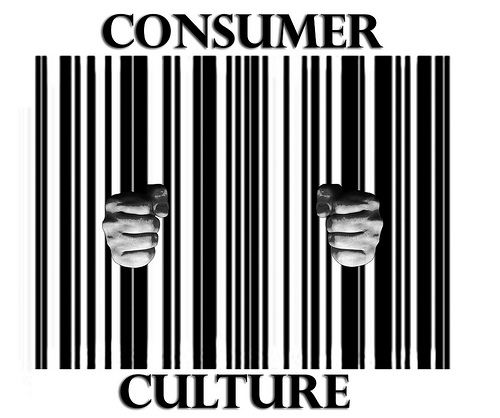
You should be informed about the latest information on parenting if you're thinking of becoming parent. This article will share the good and bad news about this new role. It also addresses some resources for new parents including blogs, websites and information on parenting. Here are some resources to help you.
There are good and bad things about being a parent
It can be both rewarding, and sometimes downright frustrating, to be a parent. You will find yourself surrounded by caring people and a special bond with your child. But your life will also be filled with ups and downs, including sleepless nights, and you will be learning as you go. Despite the rewards of parenting, there is no denying that the transition to being a parent is difficult. There are many resources that will help you to cope, including professional assistance and support.

Among other things, parenting teaches you to let go. They will act out if you get too involved in their lives. You can also make it difficult for them to resolve conflicts by being too dependent on you. Learning to let go of control doesn't make you any less of a loving parent, though. It shows your child that you are there for them.
Resources for parents
If you're a parent looking for tips, resources, and advice, you have come to the right place. While parenting is hard work, it is possible to raise your child in a healthy manner with the right support. ChildHelp provides state-based resources and information on child safety, educational and social issues, and family relationships. A parent support group is available for parents to meet and share their stories.
Parents will be able to see what their children are learning through personalized learning plans. There are lots of fun learning games, activities pages, lesson plan, and diagnostic report options. Parents can also create daily plans that will guide their child throughout the week. These tools can help parents gain a better understanding of what their child is learning at school. They also allow them to be more involved in their child’s development.
Websites that offer parenting advice
Many websites that provide parenting news can offer advice to parents. Parents often turn to these resources for tips and advice, and they can also help them feel more connected to other parents. Many of these sites are affiliated to professional advice and support organizations. The National Parenting Center is one example. It offers comprehensive advice and support for new parents. The NPC features information from renowned authorities. This site provides information about all aspects of parenting, including pregnancy and adolescence.

The American Academy of Pediatrics offers a website that provides information on a wide range of parenting topics. It features parenting news and tips as well as lifestyle articles. Essential Kids is a sister website that offers articles on family, discipline and puberty. Parents of children of all ages will find many videos and articles to help them. A website is also available from the Department of Health that addresses child development and provides parenting advice.
FAQ
Who invented the word Pop Music?
Frank Zappa invents the term pop music. Pop music was his preferred style.
He said that he wanted music to appeal to everyone. That's why he called his music pop music.
Zappa also invented the phrase "You Know It's Pop when ..."", which signifies that something is popular if there are many people who enjoy it. Michael Jackson's Thriller album, for example, is one of his most popular albums.
Zappa's definitions of pop music are different than the current. Pop music is today all music. Back then, pop music was limited to certain types of music.
What is pop-media culture?
Pop culture is all around. It is everywhere we go: TVs, radios and films, music, magazines, newspapers and websites, as well as social networks. It is all around us 24/7. Pop culture influences everything, from clothes to music and language to politics and religion. What exactly is pop culture? According to Wikipedia, "Popular culture (or popular culture) refers to the products and ideas produced for mass consumption in society." Many people think that this term applies to television shows, movies, music, fashion, and other forms of entertainment. Pop culture goes beyond entertainment. The term describes anything consumed by the masses, such as video games, sports, toys, clothing, fast food, political campaigns, and many others.
How can we avoid falling prey to the temptations of pop culture?
We must first recognize when pop music is influencing our lives. Then we need to make sure that we're not influenced by it. Here are some ways to stay clear of bad influences.
-
Avoid violent shows such as Game of Thrones.
-
Avoid spending too much time surfing the Internet. Instead, learn from books.
-
Spend less time watching television. Spend your spare time engaging in healthy activities.
-
Make sure you are careful what you post online. You can't delete comments after they have been posted.
-
Verify that the websites you visit contain security measures. Before you submit personal information, make sure they are checked.
-
Do not allow anyone to force you into doing anything dangerous.
Talk to someone if pop culture is a problem. You can contact your local library, or the National Center For Missing & Exposed Children (1-800-583-LOL).
How did pop music become popular?
It was an accident. It was an accident. The first song was accidentally written when someone knocked over the piano while playing on New Year's Eve 1920.
The recording company liked what it heard and decided that the single would be released.
This was the first hit single.
Pop music has been the most loved form of musical entertainment since then.
What are some positive aspects of pop culture?
Pop culture doesn't have to be bad. It gives people something to discuss. It also allows people to express their creativity. Pop culture can be used by artists to promote their works.
Pop culture's greatest asset is its ability to bring people together. Everyone wants to watch the same shows. Everyone enjoys the same music. And everyone likes the same movies. Pop culture allows us all to connect.
Problem is, not all pop culture has the same health benefits. For example, some films glorify violence. Some television programs make fun at people with mental disorders. Some bands also encourage fans to take drugs.
So, what can we do with pop culture's negative side?
We need to try to avoid the bad aspects of pop culture. It shouldn't influence us. It can lead to problems in our health. It can lead to crime. It can even cause problems in our relationships.
Pop culture should be considered as a way to help or hinder society. Is pop culture promoting good values or negative ones? Are people being indoctrinated to do terrible things?
Lastly, let's ask ourselves if we are content with the world we live. What music do you like? What TV shows do you watch? The clothes we wear
If we are concerned about our future, it is essential that we take responsibility and be accountable for our actions. We must decide the world we want. This will allow us to choose the right kind of pop culture.
Is Tik Tok pop-culture?
Yes, it is! This is not only for teenagers. Anyone can use these short videos to show how they feel, express themselves, and share life moments with friends.
The app is used daily by more than 200 million people around the globe. This number continues to grow by millions every single day.
TikTok offers brands a unique opportunity to connect with consumers and establish meaningful relationships.
TikTok is also home for many influencers who have built huge followings. These creators produce original content that engages people around the world.
So what are waiting for? Here are four options to help you take advantage this trend.
-
You can create viral content
-
Engage Influencers
-
Use Visuals Effectively
-
Be Creative With Your Audience
What can pop culture teach us about ourselves?
Our society today values material things over everything else. This is especially true for younger people. They spend hours every day looking at screens. They watch movies, play video games, and surf the web. All of these distract them from the task at hand, which is to complete school work. This leads to them failing classes.
It is a world where everyone wants in. That means being popular. Popularity depends on money, clothes, and other possessions. Some people do this by doing things that aren’t right.
Technology has made us dependent. We have all the information we need thanks to technology. However, not all information is accurate. There are many false rumors floating around the Internet. These rumors quickly spread because people share them through social media. It's easy to post something without checking whether it's true.
People have lost their ability to think critically. People believe everything they see on the Internet. They believe what is written in magazines and on television. They stop thinking for and about themselves. They instead follow the crowd.
Relying on others for information can cause us to lose control of our lives. Pop culture teaches that we should depend on other people. It can also lead to lazy people. We don't always see the truth, but it is there.
Statistics
- For example, the term hater meaning someone who strongly undermines or criticizes others, often due to pathetic jealousy, likely emerged from hip hop culture, such as the term playa hateras, used by influential rapper Biggie Smalls as early as 1995. (simplicable.com)
- Latinos represent roughly 19% of the U.S. population. (npr.org)
- Less than a decade later, that statistic rose to 90% (Dager, n.d.). (socialsci.libretexts.org)
- According to CNBC.com, “more than 70% of the film's revenue came from countries outside the US” (https://www.cnbc.com/2019/01/08/aqua...nal-sales.html, ret. 8/18/19). (socialsci.libretexts.org)
- In 1987, US films captured 56% of the European film market. (socialsci.libretexts.org)
External Links
How To
What are some of the most famous pop culture references you can think of?
In the 1960s, Americans were obsessed with space travel. Star Trek was the most famous TV series of that era.
The original series aired from 1966 to 1969 on NBC. It featured William Shatner as Captain Kirk and Leonard Nimoy playing Mr. Spock. DeForest Kelley played Dr. McCoy. James Doohan was Scotty. Majel Barry Roddenberry was Uhura.Nichelle Nichols was Lieutenant Nyota Uhura. Walter Koenig played Pavel Chekov. Grace Lee Whitney played Yeoman Janice Rand. (Wikipedia)
In 1967, the series was the subject of the first feature-length film. Paramount Pictures released "Star Trek" as the title. Robert Wise directed this movie. The cast included William Shatner. Leonard Nimoy. DeForest Kelley. James Doohan. Walter Koenig. Majel Barrett. Roland Nichelle Nichols. George Takei. Grace Lee Whitney. (Wikipedia)
In 1968, the second season started airing on television. The crew traveled back in time to 1969 for this season. (Wikipedia)
A few years later, in 1971, the third season of the television series started airing. This season introduced Commander Richard A. Morn as a new character. He was a Starfleet officer who had been born on Earth in 2063. (Wikipedia)
During this period, there was also a live-action spinoff called "Star Trek: Planet of the Apes". It aired on the air between 1972 and 1974. (Wikipedia)
The fourth season debuted in 1973. This season introduced two new characters named Lt. Ilia and Ensign Ro Laren. They were both played by Marina Sirtis. (Wikipedia)
The fifth season premiered in 1975. It was the last series to air before the franchise went out of business. (Wikipedia)
After the series was cancelled, many attempts were made to revive them. Some of them included a 1977 pilot episode entitled "Where No Man Has Gone Before," which failed to find a network or studio partner. (Wikipedia)
There has also been a 1998 animated series called "Star Trek: New Voyages". It lasted 13 episodes. (Wikipedia).
After a seven-year break, the sixth series of the television series returned to the screen in 2009. It was entitled "Enterprise". It ran for five seasons until 2013. (Wikipedia)
Also, there were three feature films made in this time period. The first was released in 1979. It was known as "Star Trek: The Motion Picture." It was directed by Nicholas Meyer. It starred William Shatner. James Doohan, Leonard Nimoy. Walter Koenig. Majel Barr Roddy, George Takei. Ricardo Montalban was also in the film. (Wikipedia)
The next two movies were made in 1982 and 1987. They were named "Star Trek II, The Wrath of Khan" ("Star Trek III: The Search For Spock") and "Star Trek III: The Search For Spock ("Star Trek III: The Search For Spock). Nicholas Meyer directed both of these movies. (Wikipedia)
In 2001, the seventh season of the television series aired. It was titled "Encounter at Farpoint". It was the first episode of the show's history without guest stars. (Wikipedia)
2005 was the last episode of the television series. It was titled "All Good Things ...".." It was written by Ronald D. Moore. David Livingston directed the film. (Wikipedia.)
Star Trek TV premiered a brand-new show in 2008 called "Trek Nation". It was called Trek Nation. It is currently being shown on CBS. (Wikipedia). The story of "Trek Nation", a group of people coming from different walks of society, who form their own United Federation of Planets. Their goal? To help other planets find peace. (Wikipedia). "Trek Nation", a fascinating concept, shows how different people can come together and make something positive. (YouTube Video)
You should read books on the timeline of Star Trek. Start with Gary Wolfe's book Star Trek Chronology. You can find many more books online.